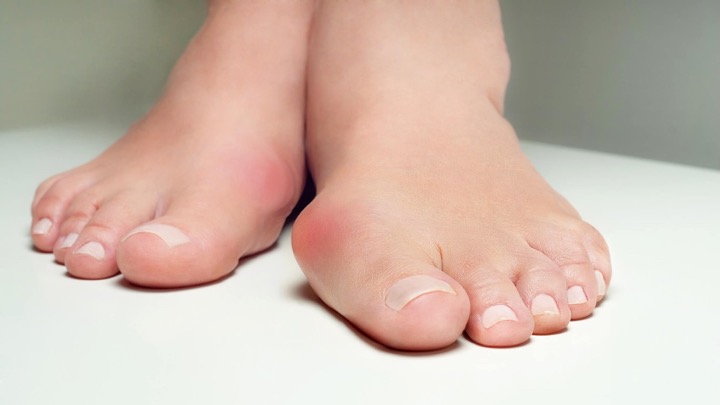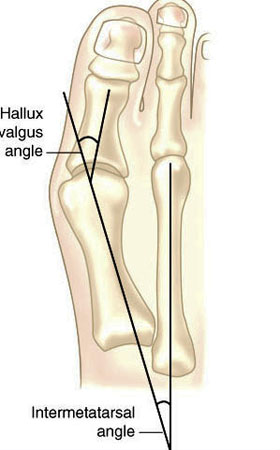Have I got a bunion?
How to tell if you have a bunion:
A bunion is a bony bump associated with arthritic changes to the bone at the base of the big toe. Bunions affect around 25% of the population.
You have a bunion when the big toe is no longer straight and goes off at an angle towards the smaller toes. This can also affect the little toe, then it is referred to as a bunionette.
Our podiatrists refer to bunions as Hallux Valgus which actually describes the change in direction of the big toe in this deformity rather than the bony lump.


With age, the big toe may continue to drift and feet with bunions widen, the function of tendons alters and hammer toes often develop.
Tight footwear can rub against the bony bump and cause pain or problems such as corns, bursae, ulcers, and infections around the joint.
Some patients do not feel any symptoms with their bunions but for others they feel pain may also get swelling and struggle to find comfortable footwear. Even prolonged standing can cause more pain that can impair walking.
Is the cause of bunions solely due to footwear?
Bunion can be hereditary (inherited) or may have developed from wearing poorly fitting shoes.
As the problem progresses the big toe gradually becomes weaker, and the arches fall. Eventually, when you walk you will perform the majority of your push-off from the middle of your foot, rather than the big toe. When this happens the big toe increasingly bends inward toward the other toes, creating growing bump along the inside edge of your foot. Your foot will become dysfunctional and you may experience pain not only from the bunion itself, but also from the progressive collapse of your arches.
Stylish shoes are not always a good idea if they are not comfortable around the big toe area.
Wearing shoes that are: too small, have a tight or pointed toe or with a very high heel can lead to formation a bunion.
Bunions are:
- More common in women than in men. Men do get bunions, but their footwear allows them to manage them better.
- Hereditary, if one of your parents has bunions, it is more likely (not definite) that you will also have the condition.
You should seek professional assistance if:
- You suspect you have a bunion and are concerned about it
- Your bunion is painful
- You develop swelling and redness over the bunion
- You cannot wear the shoes you want.
You don’t need to “wait until it hurts”
Our Podiatrists can:
- Give you advice on preventing a bunion or reducing it’s symptoms or progression
- Prescribe Exercises to help prevent or slow progression
- Prescribe Orthotics to help prevent or slow progression
- Provide Ultrasound Guided Steroid Injections to reduce swelling and provide prolonged pain relief in the joint
- Help you understand all the treatment options available to you including when you should consider surgery.